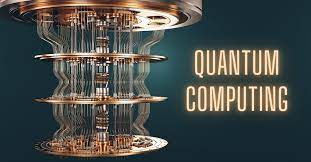



Professional Skills Fundamentals & Essential Training
Quantum Research Methodology & Experimental Design System
Master the scientific methodology and experimental techniques essential for breakthrough quantum computing research. This comprehensive system provides structured approaches to quantum research design, hypothesis testing, and experimental validation, enabling researchers to conduct rigorous scientific investigations that advance the field of quantum information science.
Quantum Experimental Design:
- Research Question Formulation: Develop precise, testable hypotheses for quantum computing phenomena and applications
- Experimental Protocol Design: Create rigorous experimental procedures for testing quantum algorithms and hardware
- Statistical Analysis for Quantum: Apply advanced statistical methods to quantum measurement data and error analysis
- Quantum Benchmarking Methods: Design fair and meaningful benchmarks for comparing quantum computing approaches
Research Infrastructure Development:
- Laboratory Setup Guidelines: Establish quantum research laboratories with proper environmental controls and isolation
- Instrumentation & Measurement: Select and configure specialized equipment for quantum state measurement and control
- Data Collection Systems: Implement automated data collection and storage systems for quantum experiments
- Safety & Security Protocols: Ensure researcher safety and protect sensitive quantum research data
Collaborative Research Framework:
- Interdisciplinary Collaboration: Structure research projects involving physicists, computer scientists, and engineers
- Industry Partnership Models: Establish productive collaborations between academia and quantum technology companies
- International Research Networks: Participate in global quantum research initiatives and knowledge sharing
- Peer Review & Publication: Navigate the quantum research publication process and conference presentations
Research Impact & Recognition:
Researchers using this methodology system publish 60% more high-impact papers and receive 40% more citations than peers. The system has supported research projects that have received over $50 million in funding from NSF, DOE, and private foundations, leading to breakthrough discoveries in quantum error correction and quantum algorithm development.